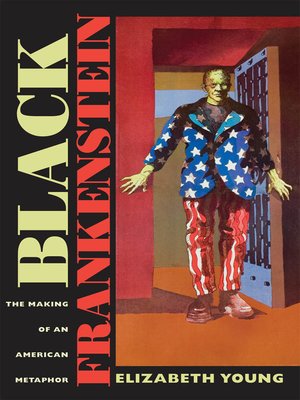Black Frankenstein
ebook ∣ The Making of an American Metaphor · America and the Long 19th Century
By Elizabeth Young

Sign up to save your library
With an OverDrive account, you can save your favorite libraries for at-a-glance information about availability. Find out more about OverDrive accounts.
Find this title in Libby, the library reading app by OverDrive.



Search for a digital library with this title
Title found at these libraries:
| Loading... |
For all the scholarship devoted to Mary Shelley's English novel Frankenstein, there has been surprisingly little attention paid to its role in American culture, and virtually none to its racial resonances in the United States. In Black Frankenstein, Elizabeth Young identifies and interprets the figure of a black American Frankenstein monster as it appears with surprising frequency throughout nineteenth- and twentieth-century U.S. culture, in fiction, film, essays, oratory, painting, and other media, and in works by both whites and African Americans.
Black Frankenstein stories, Young argues, effect four kinds of racial critique: they humanize the slave; they explain, if not justify, black violence; they condemn the slaveowner; and they expose the instability of white power. The black Frankenstein's monster has served as a powerful metaphor for reinforcing racial hierarchy—and as an even more powerful metaphor for shaping anti-racist critique. Illuminating the power of parody and reappropriation, Black Frankenstein tells the story of a metaphor that continues to matter to literature, culture, aesthetics, and politics.






